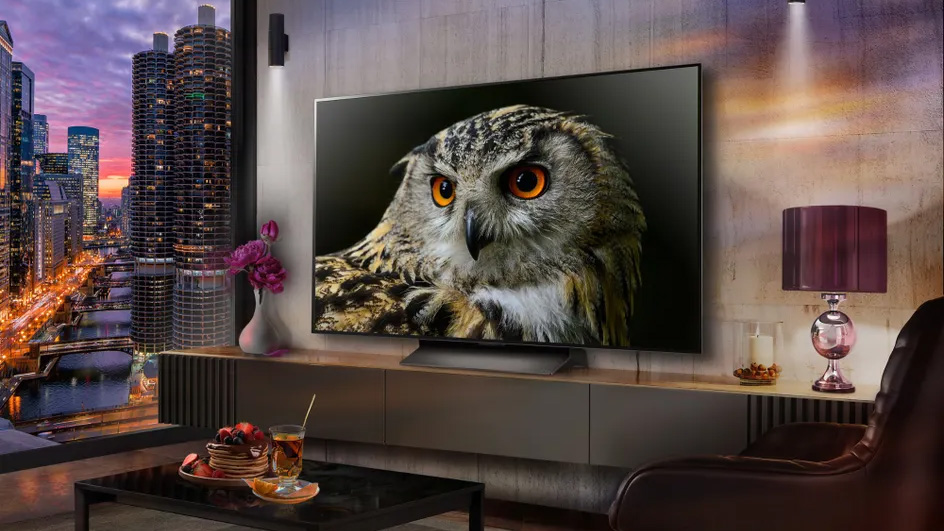
Let's not deviate from the point straight up: the LG OLED C4 is a top-flight TV. Sure, it's a step below the top-tier LG OLED G4, but while the C4 may lack the exact same cutting-edge panel, that certainly doesn’t mean this mainstream hero lags far behind. Indeed, this is one of the year's best TVs.
Somehow, LG has managed to eke out even higher levels of performance compared to its 2023 predecessor – the admittedly similar LG OLED C3 – by pushing the performance envelope with intriguing new AI-driven image processing, and better Brightness Boosting algorithms.
So should the LG OLED C4 be your next TV if you're hunting down one of the best OLED TVs in particular? I’ve had the 65-incher on the test bench, and reckon this mid-to-upper level telly could be a tough act for rivals to match. Here's why:
LG OLED C4: Price & Availability
Positioned below LG’s flagship OLED G4 and wireless OLED M4 models, the OLED C4 is available in 42-, 48-, 55-, 65-, 77- and 83-inch screen sizes, so it shouldn’t be too difficult to find a model that fits your needs.
For review I've got the 65-inch model, which is priced at £2,699 upon launch, putting it at the top-end of the scale for a screen of this size (although deals have and will see that quickly fall).
In the US the 65-incher is $2,699, while in Australia you can get one for AU$4,077. Other prices for differing sizes can be seen in the real-time widget embedded above, which will populate with panels per your region.
LG OLED C4 review: Design & Features
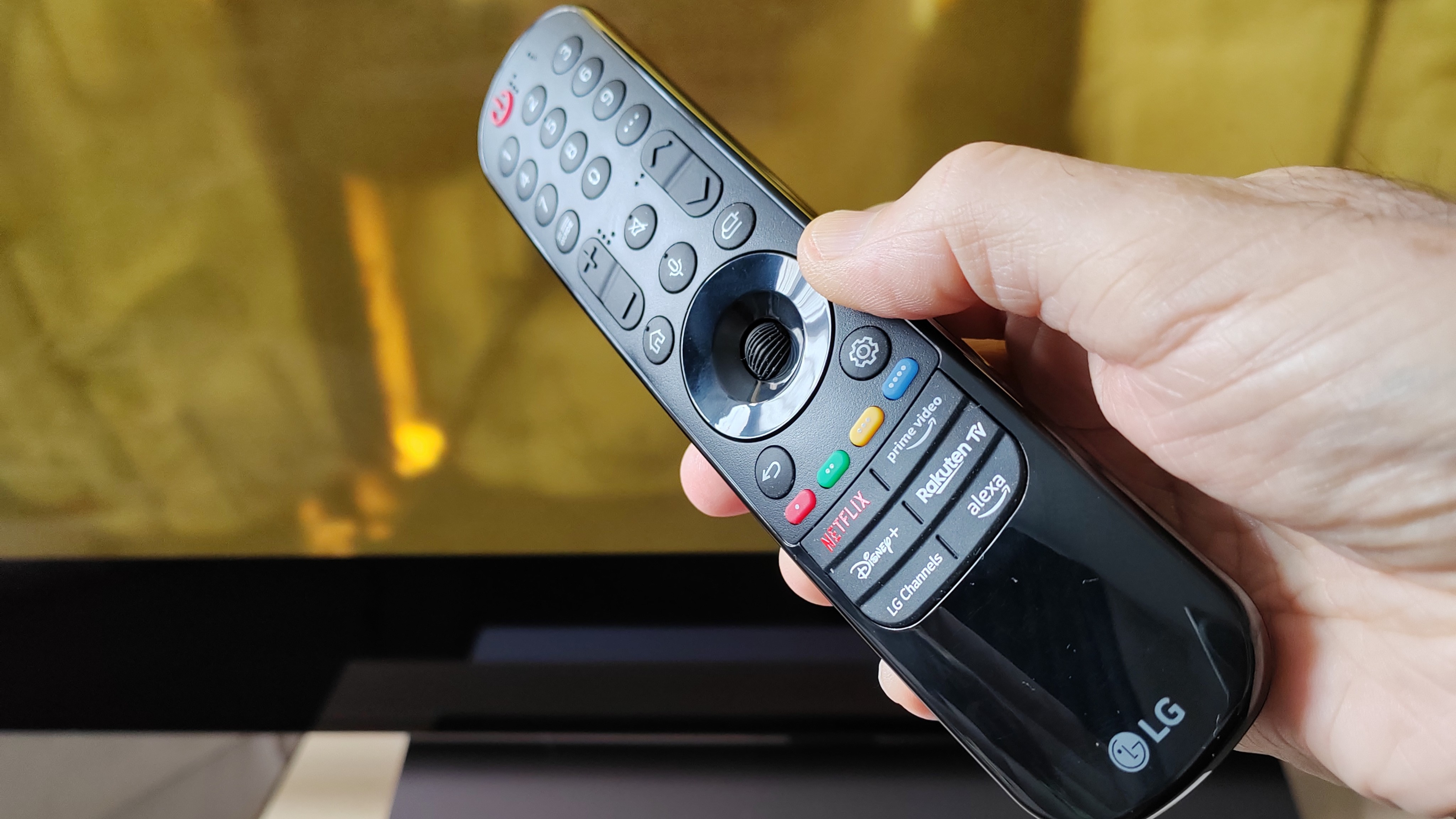
Predictably well-finished, the LG OLED C4 sports a dark metallic frame and matching central pedestal stand (unless you opt for the smaller or larger models, which adjust stand designs accordingly). New for this year is a stylish textured finish to the back panel, and a softer, rounded edge to its interface and electronics bump.
The set also comes with a slimmed-down version of the brand’s familiar Magic Remote control. Sitting easier in the hand, it has a central thumbwheel for navigation, plus dedicated buttons for Netflix, Prime Video, Disney+, Rakuten TV, Amazon Alexa and LG Channels.
Connectivity is as good as it gets. All four HDMI inputs support 4K at 120Hz playback from next-gen games consoles, so it's an ideal best TV for PS5 owners. HDMI 2 is also eARC/ARC compatible, required for for routing TV audio (including Dolby Atmos bitstreams) out to one of the best soundbars or home cinema amplifier.
The set can even stretch to 144Hz when connected to a PC with a suitably equipped graphics card. There’s Nvidia G-Sync and AMD Freesync compatibility, for tear- and stutter-free PC gaming. That's thanks to LG's on-board processor, which is among the most competitive (if not the most) on the market.
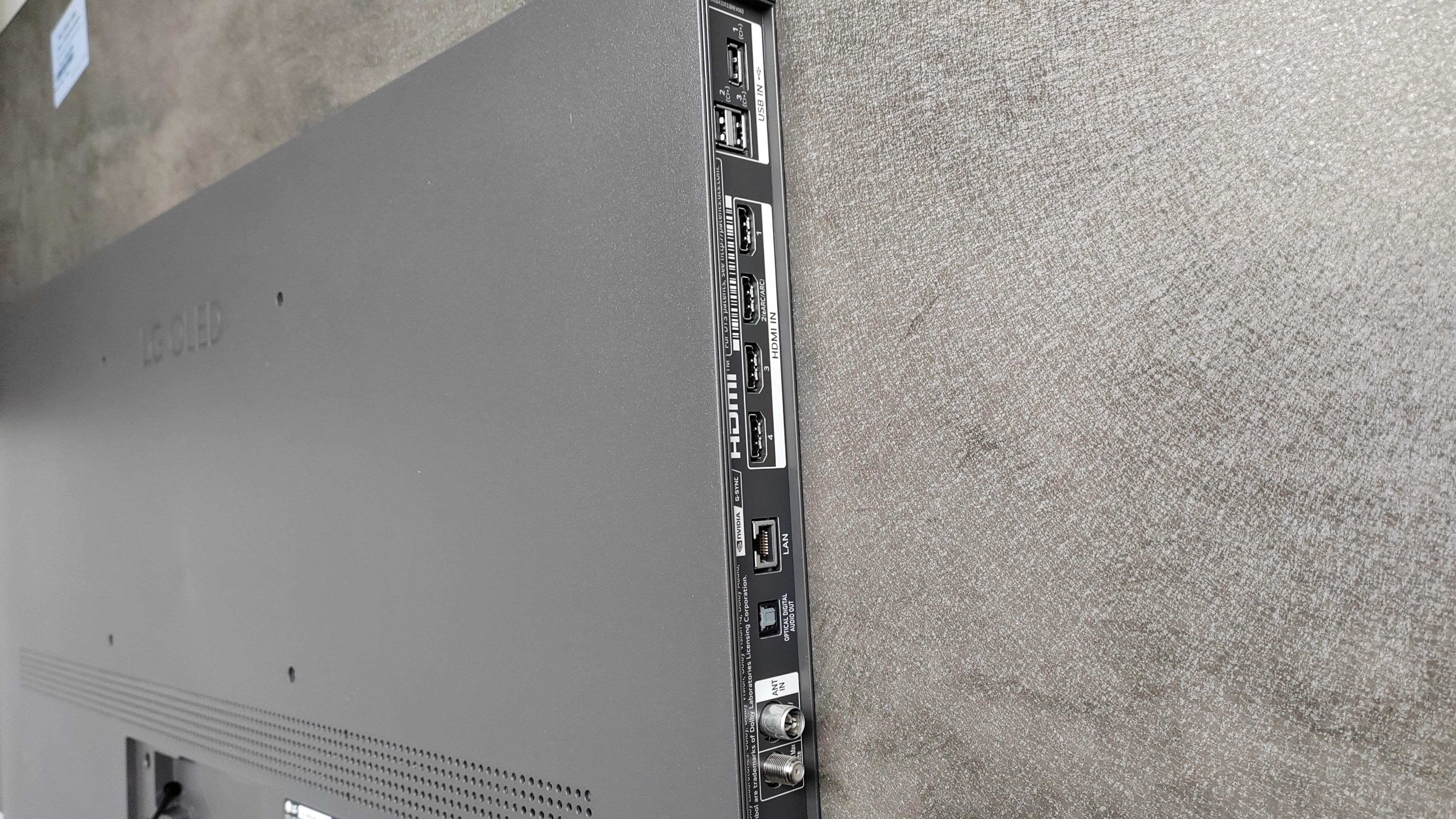
Rounding out the package are trio of USB inputs, a (legacy) optical digital audio output, and a LAN socket to complement the wireless Bluetooth and Wi-Fi connectivity. The set has both a terrestrial tuner, with Freeview Play in the UK, and satellite, for those who prefer a dish feed.
Gaming is very much a core aspect in the LG OLED C4’s feature specification. A Game Optimizer and pop-up Game Dashboard allow for swift access to game settings and gaming genre AV presets. It makes my rekindled fascination with Fallout look superb. Latency is good too. I measured input lag at 13ms (1080/60) with the set in its Game mode.
Smart functionality comes via LG’s webOS. This polished platform has had a subtle design refresh for 2024, with the introduction of User Profiles. As many as 10 individual accounts can be created, which better informs the set’s recommendation engine. Kids get suitable content pushed to their accounts, allowing adults to keep their recommendations separate. To help tidy things up, there are Quick Cards which group together various services. Apple AirPlay is also supported.
LG OLED C4 review: Performance
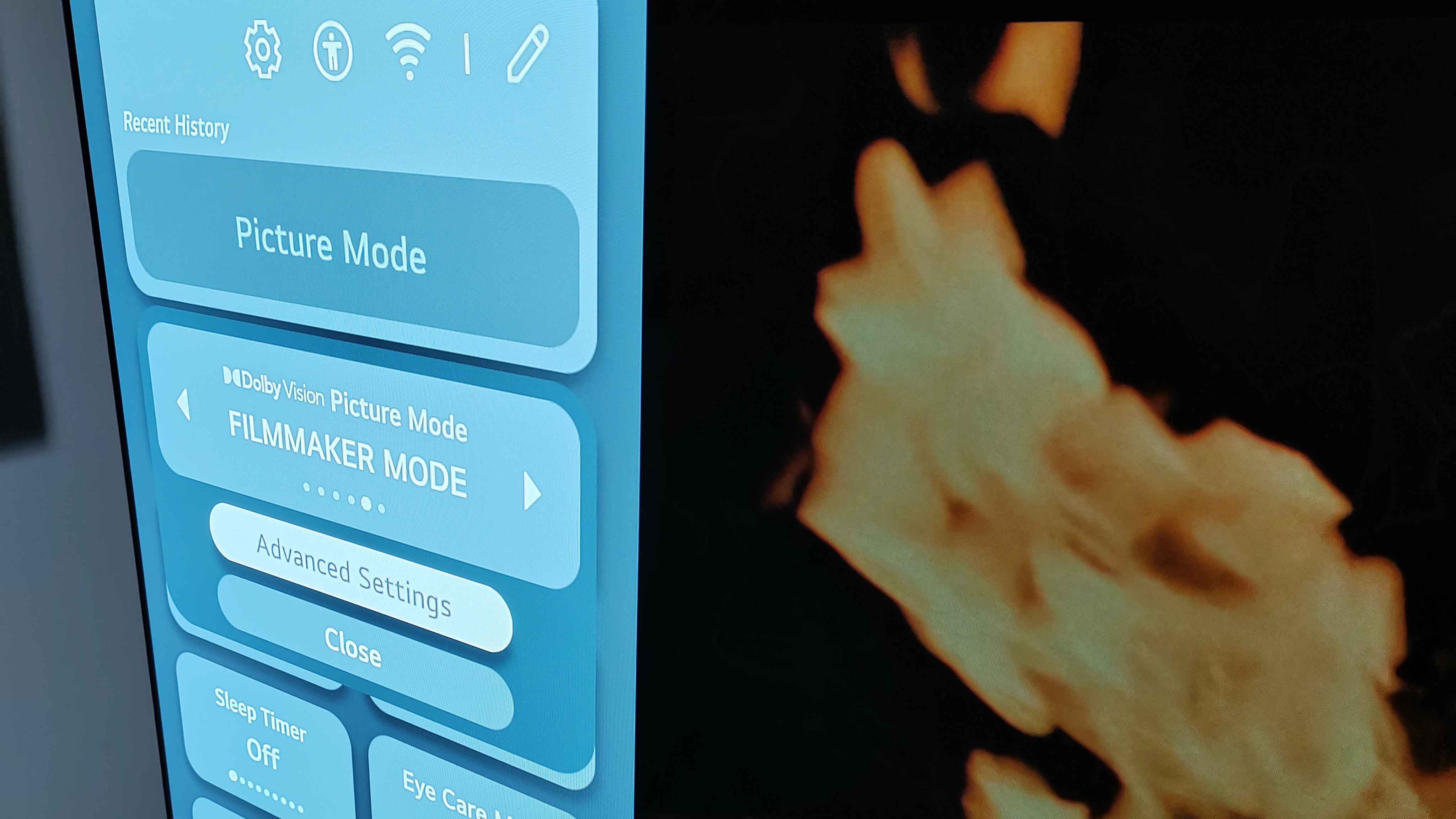
The LG OLED C4’s pictures are contrasty and colour-rich, offering a depth and clarity that’ll make you gawp. The sheer dynamism of its pictures make an immediate impression. I’m not just talking about peak high dynamic range (HDR) highlights, more an overall lift to panel brightness and colour vibrancy.
While the OLED C4 doesn’t utilise the MLA (Micro Lens Array) panel design and light architecture as found in its OLED G4 stablemate, its Brightness Boosting algorithm still claims a 30 per cent improvement over standard OLED panels (that being the not-in-the-UK OLED B4 models, it seems).
The panel’s HDR range is impressive. I measured peak HDR brightness at 1150 nits (using a 10 per cent window), which means it can comfortably cope with the specular highlights that distinguish HDR-graded streaming movies and TV shows.
The Netflix fantasy movie Damsel proved to be a great test of HDR performance, as it combines bright HDR highlights (many of which come courtesy of a fire-breathing dragon), with some challenging low -evel detail. The LG OLED C4 handles both extremes effortlessly.
Absolute blacks have inky perfection, but tellingly there’s plenty of nuance to be found in near-shadow detail too.
The set’s colour gamut is said to exceed that of DCI-P3 colour space, and there’s no doubting the richness of its reds and deepness of its blues.
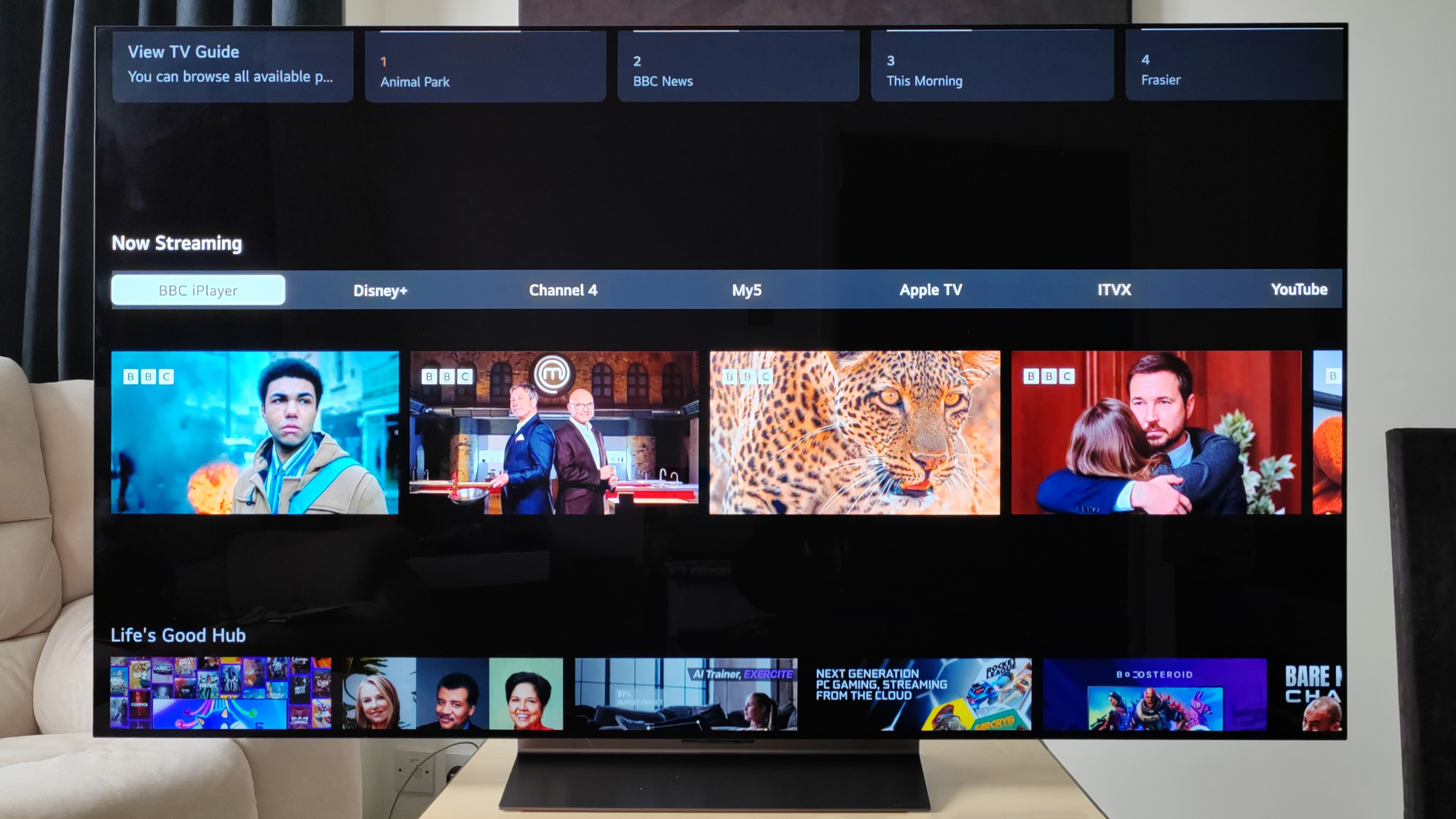
The processing brawn behind this head-turning performance is LG’s 7th Gen Alpha 9 AI processor, and it opens the door to some rather clever image enhancements. By combining brightness-boosting algorithms with deep learning neural networking, we get a raft of artificial intelligence modes, including AI Brightness, AI Picture Pro, and AI Genre Selection.
More familiar picture presets comprise Vivid, Standard, APS (Auto Power Save), Cinema, Sports, Game, Filmmaker Mode and ISF Expert modes (Bright Room/Dark Room).
Standard is the obvious go-to for everyday content. It doesn’t oversharpen details or oversaturate colour. When watching movies, I’d invariably opt for the Cinema Home preset, which is just more filmic.
Interestingly, Filmmaker Mode here is allied to Dolby Vision, which manages HDR tone-mapping. I’m not entirely sure this partnership reflects the frugality this picture preset is best known for, but it should prove useful when watching UHD Blu-ray discs mastered at 4,000 nits.
To tailor the screen to your taste, there’s also a Personalized Picture Mode, which is configured during early setup. This uses AI Deep Learning to deduce your preferred image characteristics.
Sports fans also have plenty to cheer about. LG really seems to have mastered motion handling (just as we said in the LG QNED91 Mini-LED TV review). There are the usual settings to choose from, but I found I could leave the set on its AI-powered Auto mode, which is able to detect content types and interpolate accordingly, without incurring overt artefact penalties.
LG OLED C4 review: Sound
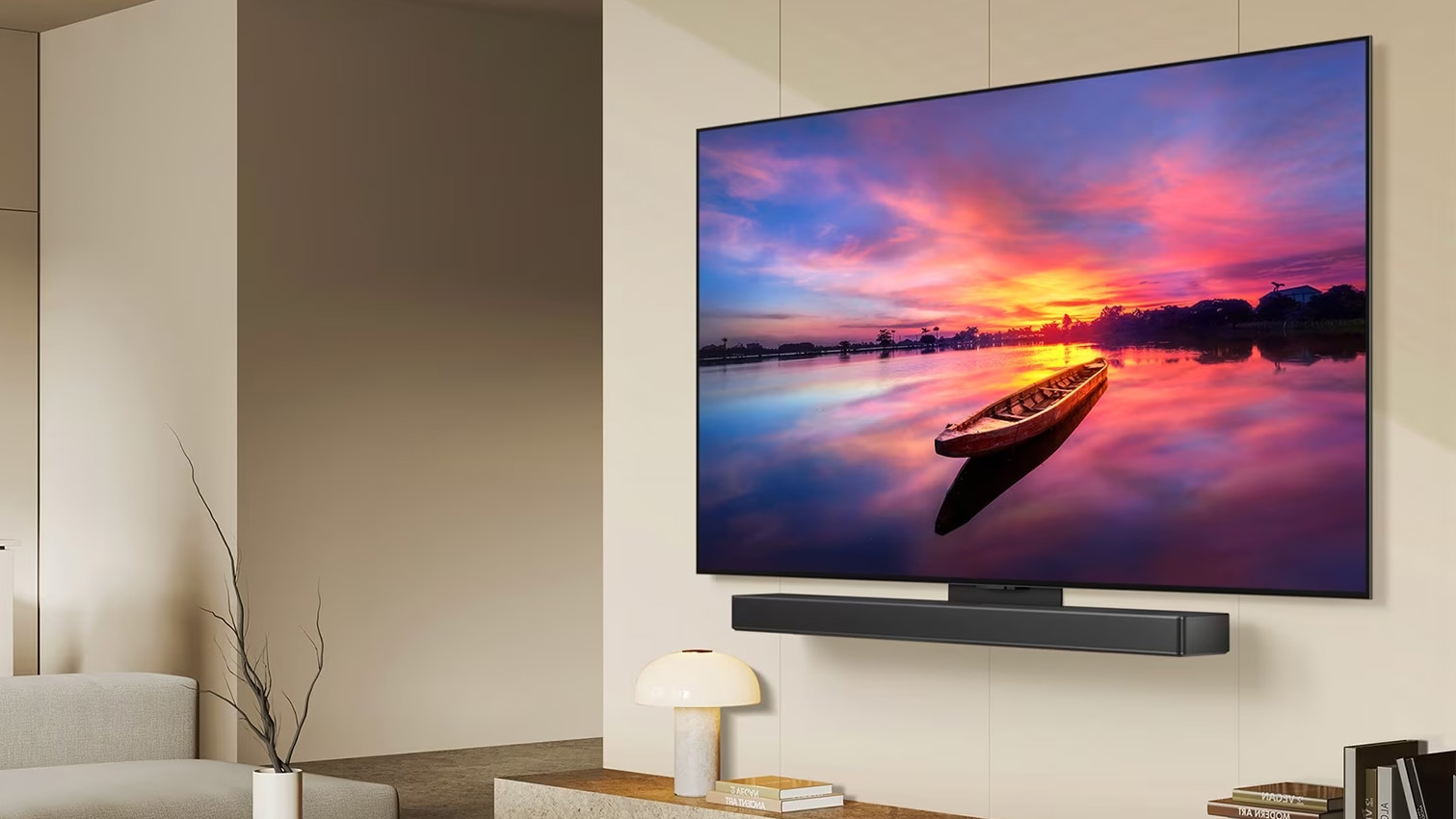
Unfortunately, audio has less to say for itself. While that 7th Gen AI processor does allow for the interpolation of source material into virtual 9.1.2, the set’s own hardware can’t actually do very much with it, given that the OLED C4’s speakers stare glumly at the floor.
The AI sound mode subjectively widens the soundstage and lifts dialogue up, but it also appears to raise the noise floor, so it’s not quite the win you might expect. Total power output is a chunky 40W, but that's not a major win when things don't sound ideal.
Things become more interesting if you connect the OLED C4 to one of the best soundbars for LG TVs, of course, such as the USC9S. This enables WOW Orchestra functionality, with the speakers in the TV working in conjunction with those in the TV. Processing applied to the audio stream by the TV’s processor can also be ported over to the soundbar, which is a nice touch.
LG OLED C4 review: Verdict
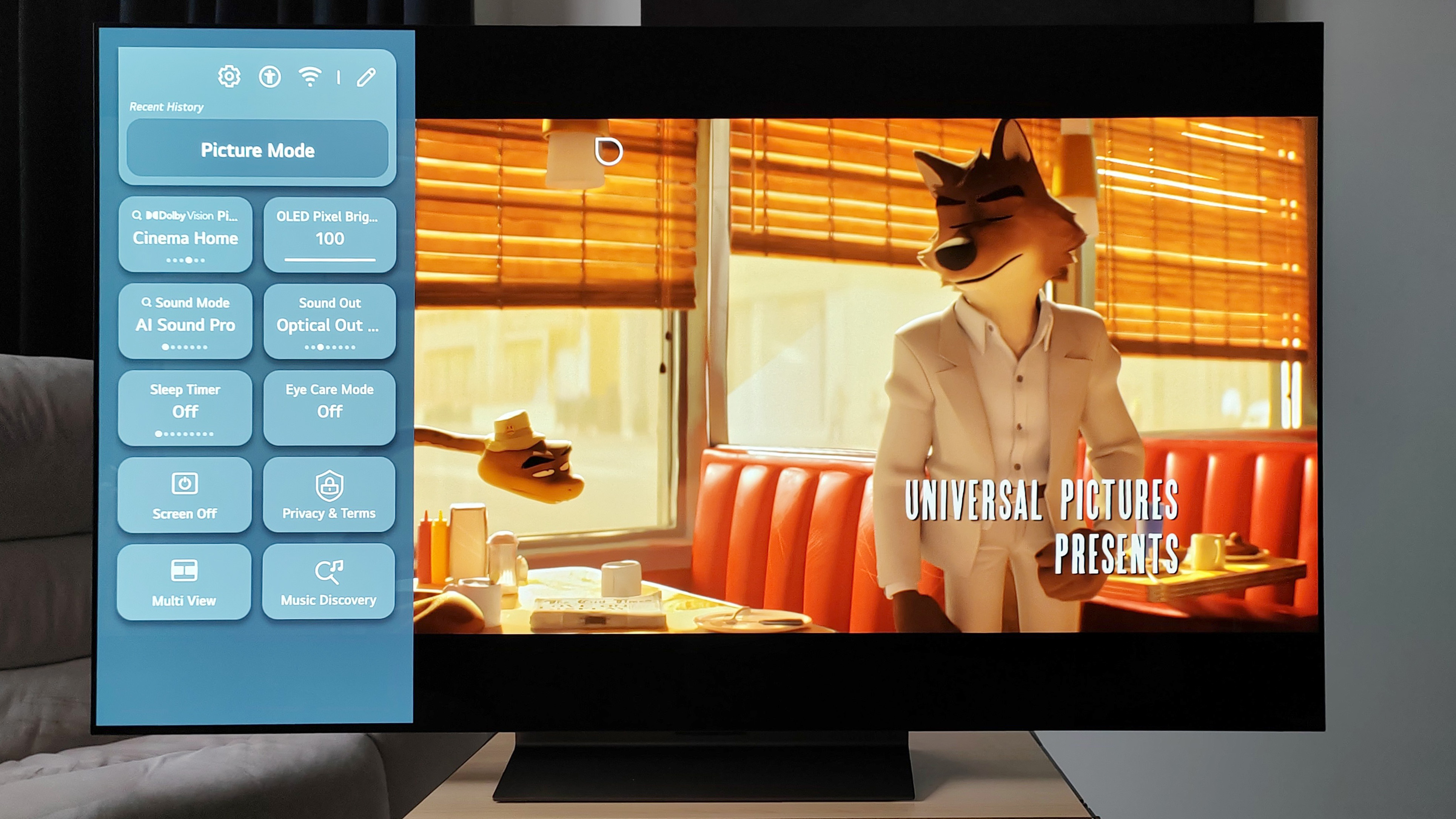
It’s difficult not to be more than a little beguiled by the LG OLED C4. Its image handling is spectacular, with eye-catching but not over-cranked colour and highly-effective HDR. A comprehensive smart TV platform in webOS, and class-leading build quality merely sweeten the deal.
There remains, of course, some room for improvement. I’d like a swivel stand rather than a stationary pedestal, to open up living room viewing options, as well as a forward-facing speaker array. I dare say webOS could also be a little more intuitive, although content curation has definitely improved with this year’s edition.
That said, if you’re looking for a 4K TV that’ll serve both as a premium home cinema display and function as a top-notch gaming screen, you’ll not be disappointed. All in all, the LG OLED C4 is a phenomenal telly.
Also consider
Sticking with classic OLED, there's plenty to recommend the Sony A80L. It delivers outstanding, naturalistic image quality, and a bombastic sound thanks to its Acoustic Surface Audio tech. The only real catch is that just two of its four HDMI inputs are 4K/120Hz compatible.
If bright room viewing is important to you, then Samsung's QN95C (a 2023-released step-down Mini-LED model) is affordable yet certainly outshines some OLEDs in terms of brightness. It’s ideal for afternoon TV catch-up and live sports. The downside is there’s no support for Dolby Vision, an obvious turn-off for movie fans.







